Smaller in scope but bigger in impact, Black Widow is a great send-off to the Avenger we love


After multiple false starts, audiences will finally be able to watch Black Widow, the first solo character movie starring the founding member of the Avengers, and the next chapter in the long-running Marvel Cinematic Universe (MCU). It’s also the first film led by a hero who’s technically dead.
Meant as the first project to kickstart Phase 4 of the MCU, the pandemic caused this movie to shift its release for over a year, allowing three Disney+ projects to make their debut ahead of the movie, and while it doesn’t matter which one audiences watch first, Black Widow definitely serves as a reset of the more over the top, outer worldly films that have emerged of the MCU in the last three years.
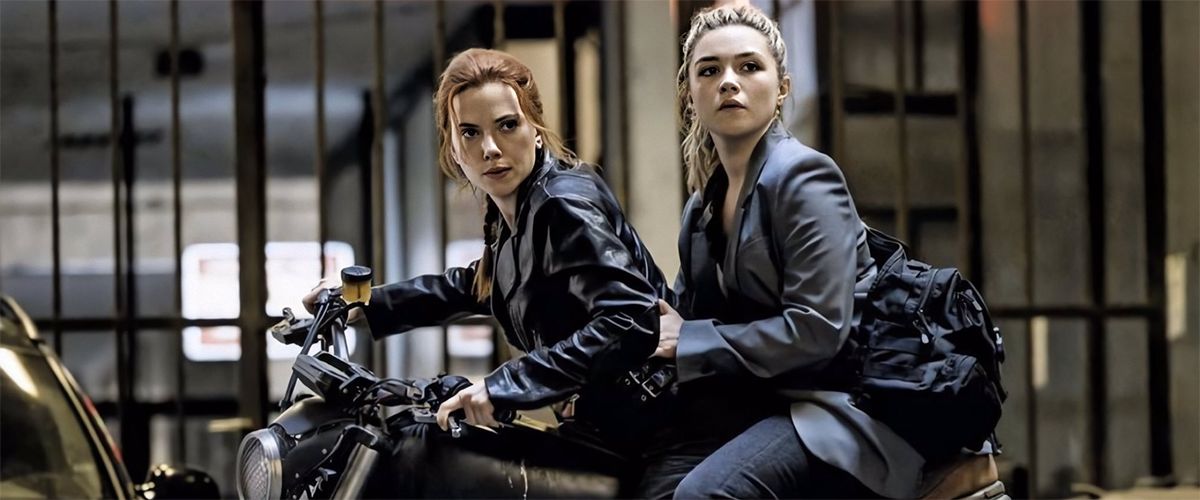
More grounded in its action and story telling, Black Widow almost feels like an early Phase 3 film that fits nicely alongside Captain America: The Winter Soldier and Captain America: Civil War, which it in fact does as the first solo film for Scarlett Johansson’s much loved character is a prequel of sorts, with events taking place after Civil War, and ending about two weeks before Avengers: Infinity War begins.
And it is with the knowledge of her death in Avengers: Endgame that makes this movie more bittersweet, that Natasha Romanoff, one time Russian assassin turned spy and now Avenger, has plenty of red on her ledger and is willing to do anything to right wrongs, and sacrifice herself for her family.
As it turns out, little orphan Natasha has always had two families – the Avengers one that she sacrificed herself for, and her original Russian family of spies and operatives whom she worked for and trained alongside during her time in the Red Room, otherwise known as the Black Widow Program, which takes young girls, and brainwashes them to become secret Soviet assassins.
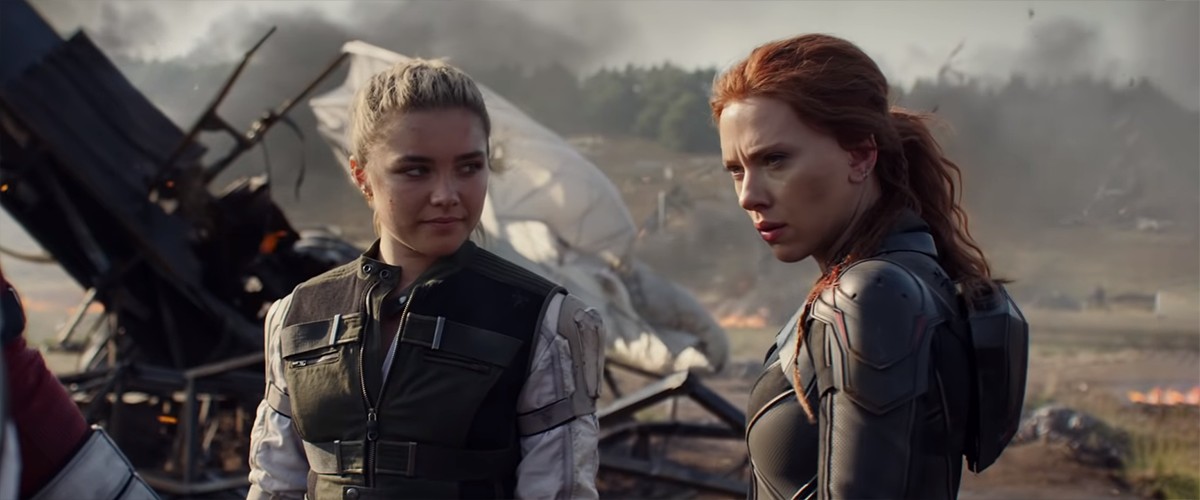
It’s an interesting peek into an early chapter of one of the MCU’s best characters who first made her debut in Iron Man 2, and it cannot be said enough that this movie works because we know so much of Natasha, but also know so little of her at the same time.
Director Cate Shortland has plenty of fun here, inserting MCU references that have peppered the character from the start, showing us how things began.
[[nid:516575]]
The throwaway conversation about her time in Budapest with Clint Barton/Hawkeye (Jeremy Renner)? We now know why the two of them remember those days differently. Breaking someone’s mind control? Natasha’s had the experience.
And “Dreykov’s daughter”? Those two words don’t mean what you think they do, and it makes you revisit what you know of Natasha a lot more.
Heck, there’s even a nice touch as to her change in outfit for Infinity War, which wasn’t necessary, but a great added element nonetheless.
Shortland also takes the opportunity to add in the greater mythos surrounding the Black Widow into the MCU, by expanding on the Russian Red Room premise audiences caught snippets of in Avengers: Age of Ultron, and by introducing fellow Black Widow Yelena Belova (Florence Pugh), Red Guardian/Alexei Shostakov (David Harbour) and Red Room’s lead scientist and former Black Widow, Melina Vostokoff (Rachel Weisz).
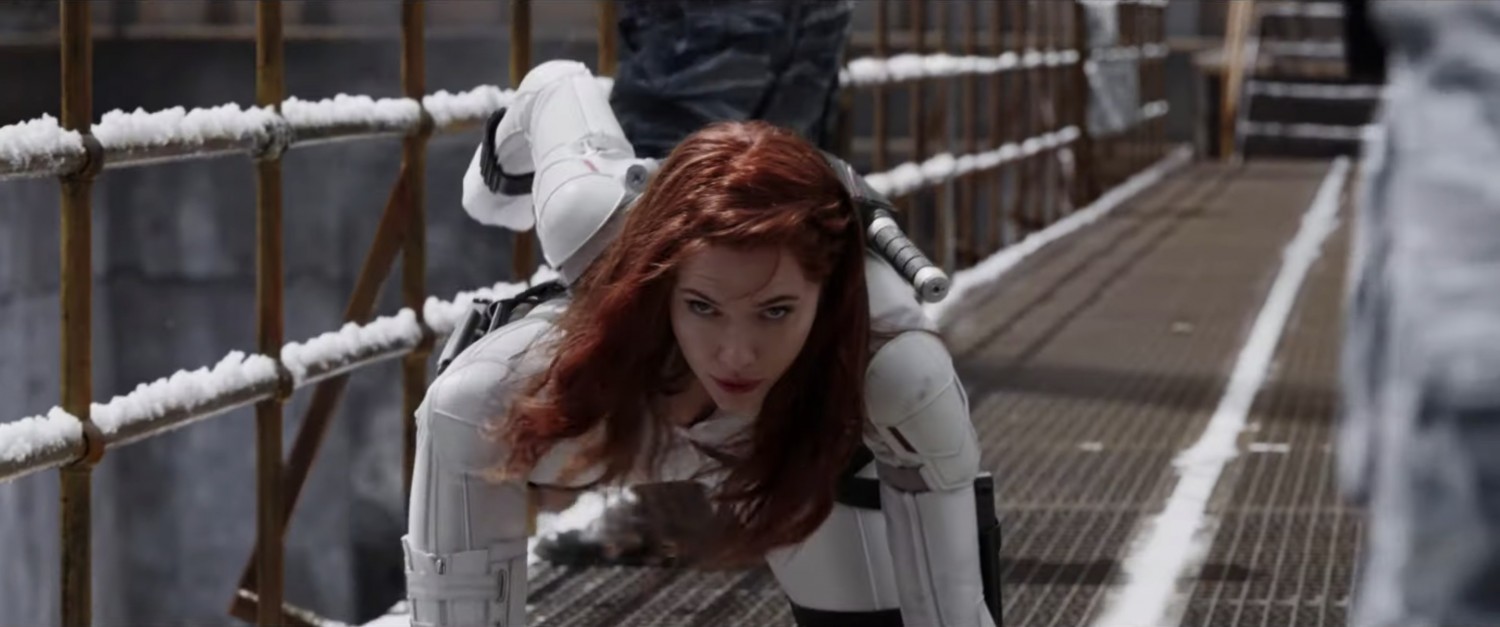
If you’re a fan of the comics and think you understand spy capers, it’s easy to be led down the rabbit hole of trying to identify double agents among the characters, but Shortland skips the expected, and focused on storytelling, and if Yelena is meant to be a replacement for Natasha, then this is one heck of a debut movie for her.
Pugh is, for lack of a better word, adorable as the trained assassin, with her out of place eccentricities. From Captain America to WandaVision, and Captain Marvel to The Falcon and the Winter Soldier, spies, secret agents and assassins have been depicted as lethal figures and Pugh’s Yelena is all of that, and funny on top of it.
[[nid:522977]]
She is able to go toe to toe with Natasha, but has a quirky humour that is a sharp contrast to Natasha. While Natasha can pass off as sexy, Yelena is that friend you always want around and can easily under estimate. She even mocks Natasha for her signature pose, and audiences can easily roll their eyes, if it wasn’t delivered and replicated in such an effective manner.
Harbour’s Red Guardian is the father figure to Natasha and Yelena, and he’s the everyman in all of us – told that he was destined for greatness and does his best to be the best for everyone, even if life catches up and reality sets in.
He’s a little bit of a silly man who boasts about his heroics for Mother Russia, even if his one story about fighting Captain America makes no sense, or does it? Complimenting him is Weisz’s Vostokoff, the mother figure who is apparently still active with the current Red Room programme that Natasha thought she crippled and disbanded years ago, when she defected to S.H.I.E.L.D.
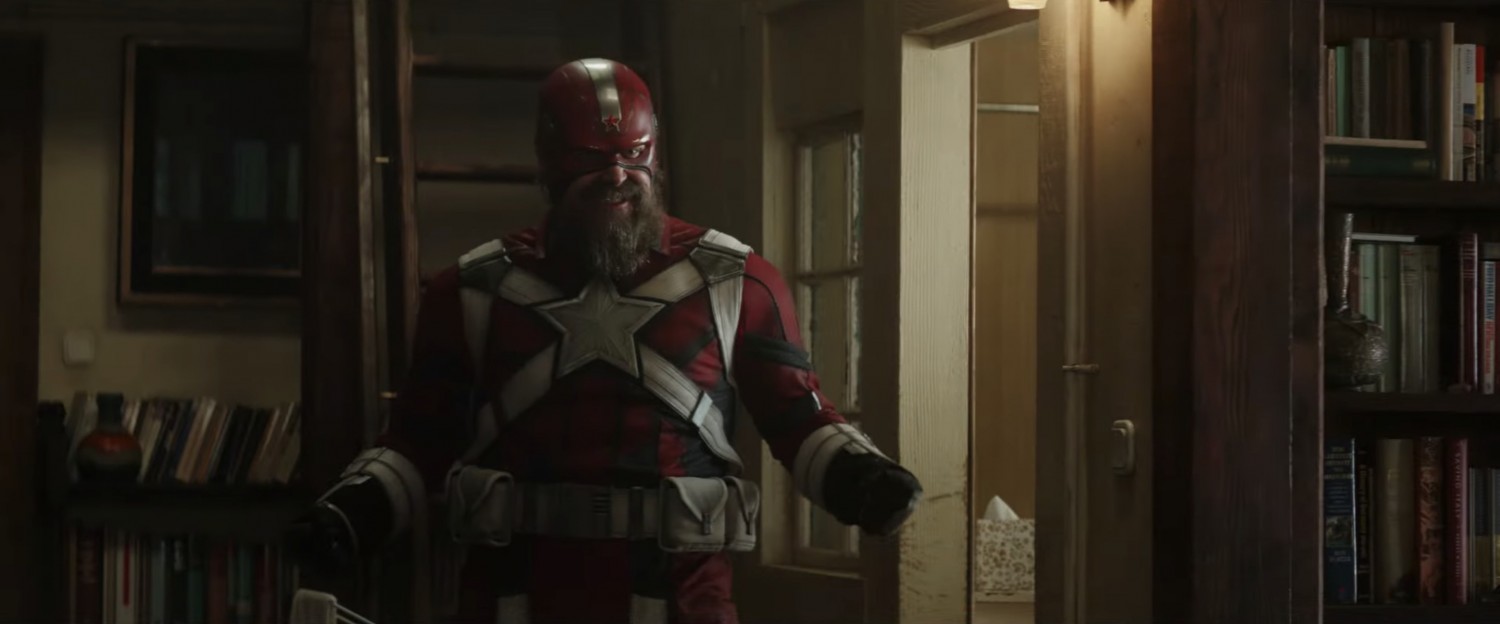
The unimpressive Russian accents aside, all four Russian operatives come face to face with a new Black Widow programme that uses an advanced form of mind control to turn little girls into deadly assassins.
[[nid:523722]]
After years of super heroics that include aliens, space fantasy and time travel, it’s refreshing to go back to the early Phase 2 days of the MCU, of augmented humans and demented madmen wanting to take over the world.
And like Captain America: The Winter Soldier, there is an ongoing pulse throughout the movie that keeps the action going, from car chases in the city, prison breaks in long forgotten mountains, and even an aerial battle that is actually way too short and could have been longer.
Black Widow also introduces a long-time Marvel Comics character into the MCU – Taskmaster, whose identity is different here than in the comics, even if both versions share the same ability of having photographic reflexes that allows the villain to mimic the fighting abilities (but not the powers) of anyone, from Captain America, Black Panther to even Spider-Man. Speculation has been rife that Taskmaster’s identity here is a twist, and while we won’t spoil it for anyone, the speculation is right, up to a point but you have to watch it for the big reveal.
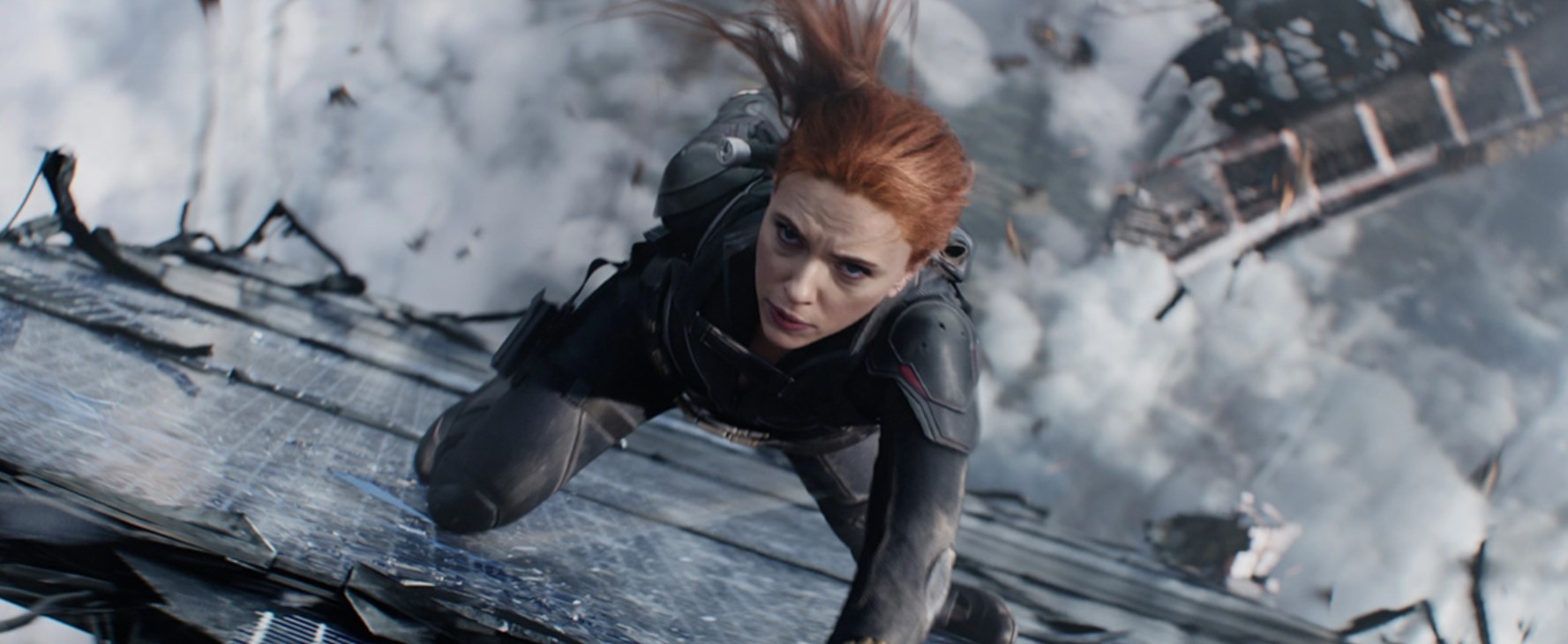
If anything, the movie tries to pack a little too much, even if it does manage to answer the one question plaguing solu MCU movies – where are the Avengers and heroes when the events shown were taking place?
[[nid:531417]]
Well, in Black Widow’s case, they were all disbanded and reeling from the effects of the Sokovia Accords.
Ultimately, it’s great to finally have Scarlett Johansson bring us the Black Widow movie audiences have been clamouring for, and Johansson is right in saying that if this movie was made a decade ago, it would have been a different move that would not be as character driven or as deep.
After a decade of inhibiting the body-hugging costume, the actress is finally ready to let go, and pass the baton, or rather, Widow Sting bracelets to someone else. And for her sacrifice in Avengers: Endgame to mean anything, this film cannot negate anything.
Instead, Johansson, Pugh and Shortland have crafted a final chapter that also serves as an origin story, offering a simple story in the Marvel way – personal, action-packed and a nice set-up for more.
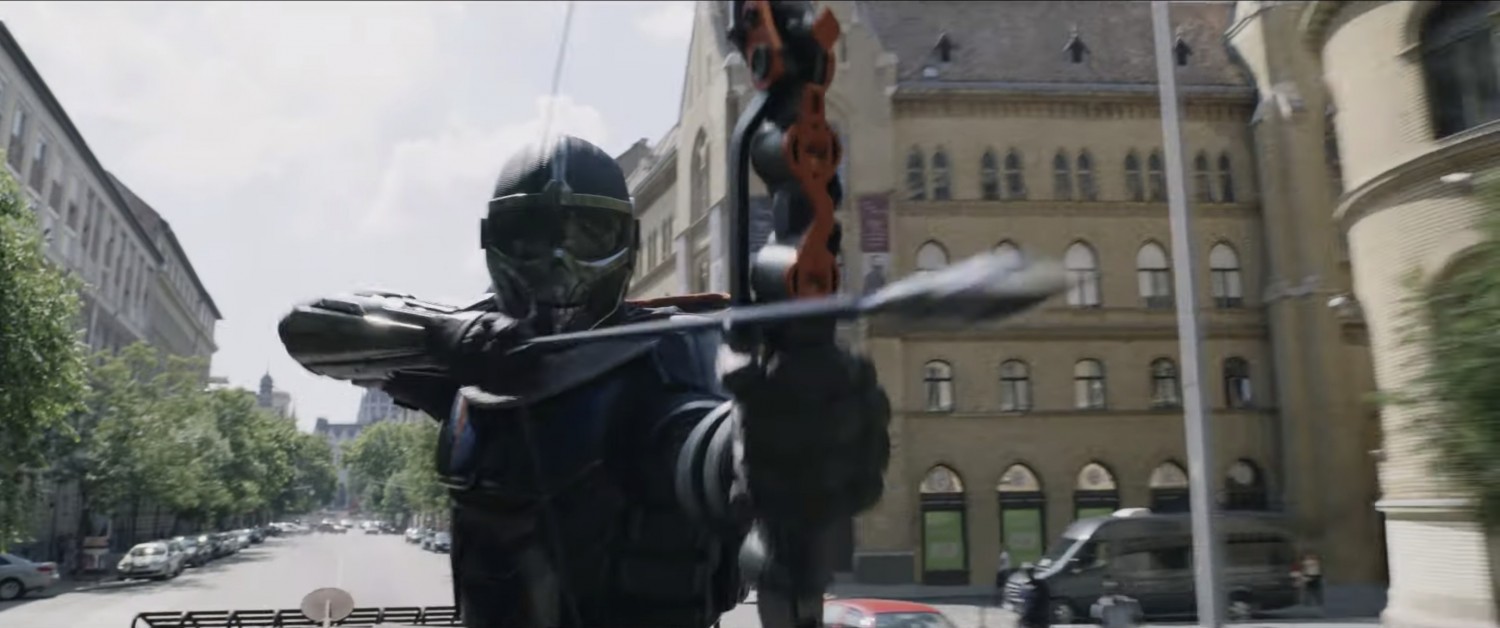
As the credits start rolling, stay in your seats and wait for the neat mid-credits scene that sets up a bigger MCU involving USAgent and Clint Barton. With the MCU headed to space with The Eternals, Thor: Love and Thunder and The Guardians of the Galaxy Vol. 3, it’s nice to see that they still see value in grounded stories once in a while.
Black Widow is slated to open in cinemas and will also stream on Disney+ via Premier Access, but if you want to celebrate the larger than life exploits of Natasha Romanoff, do yourself a favour and catch it in the theatres. There’s no better way to honour a fallen comrade.
This article was first published in Geek Culture.